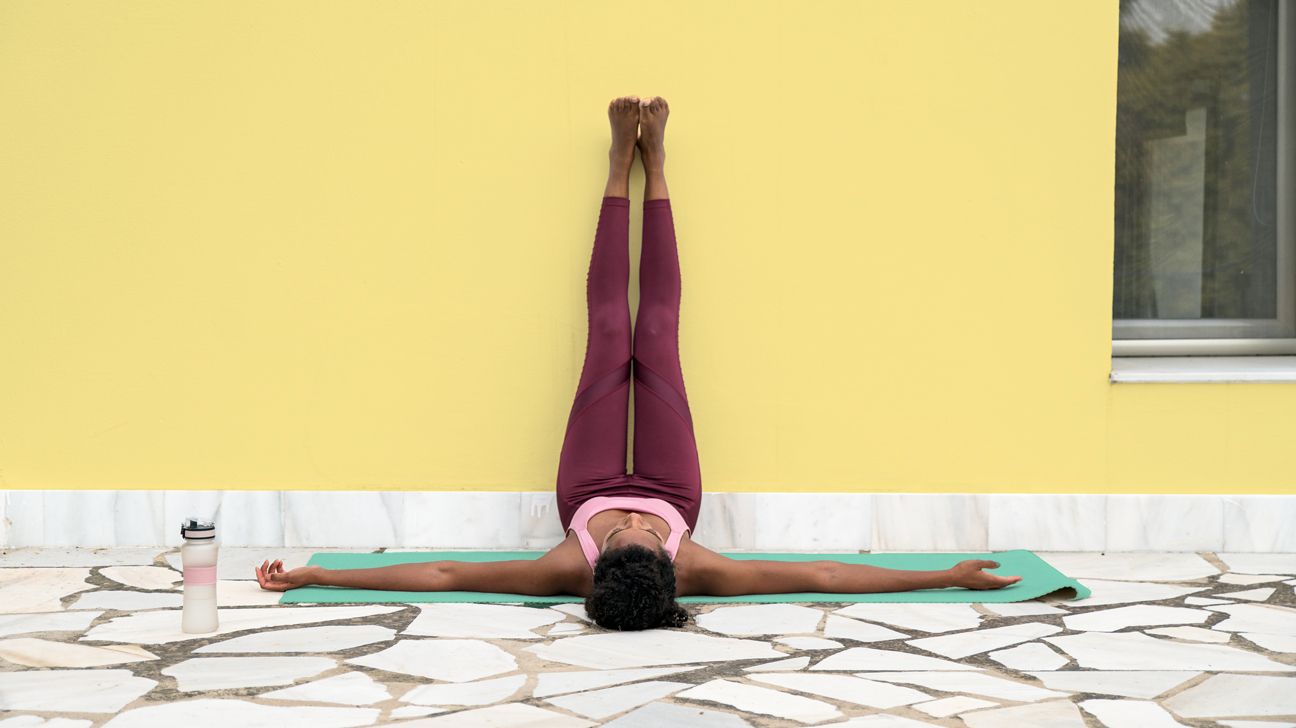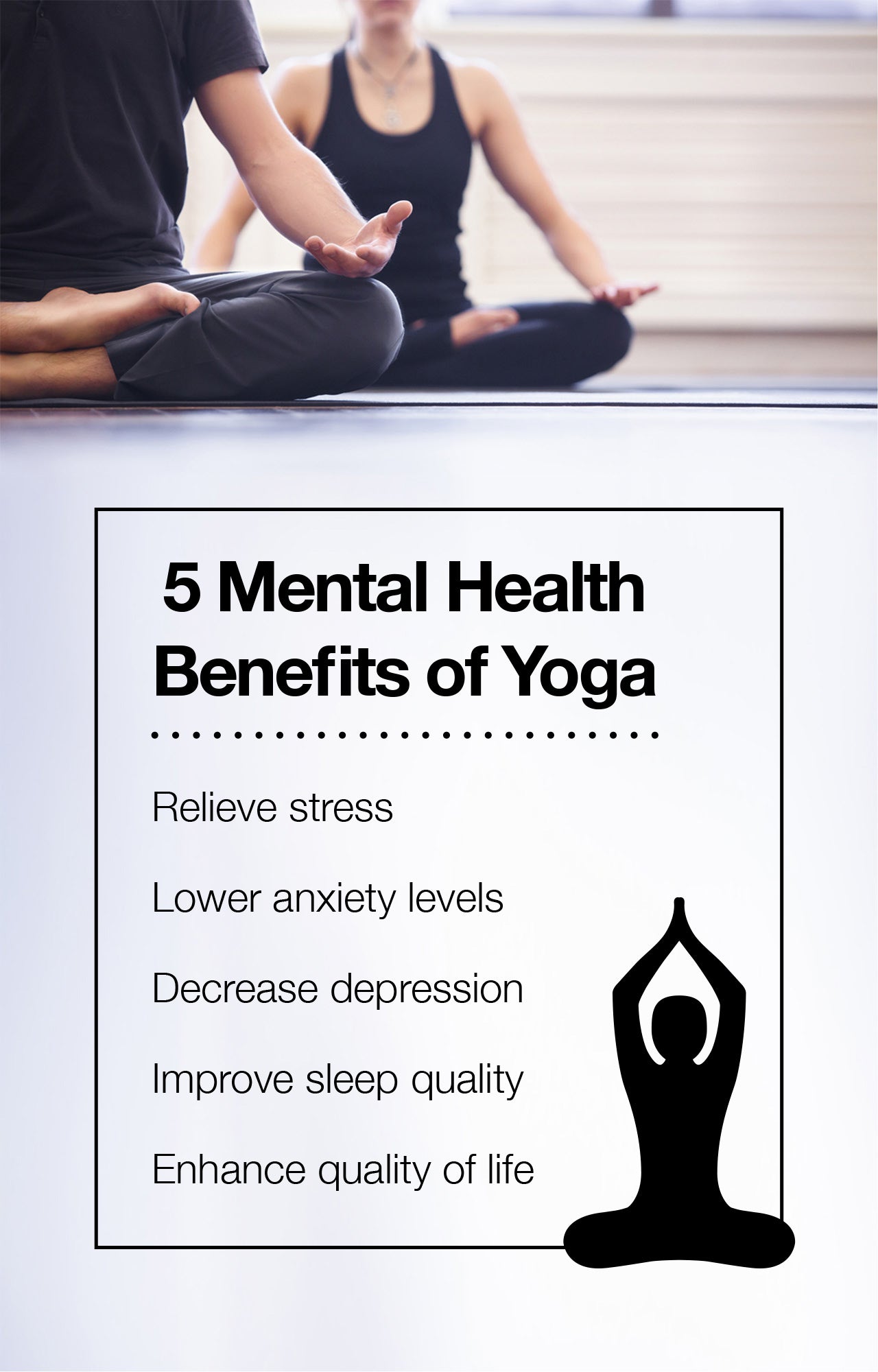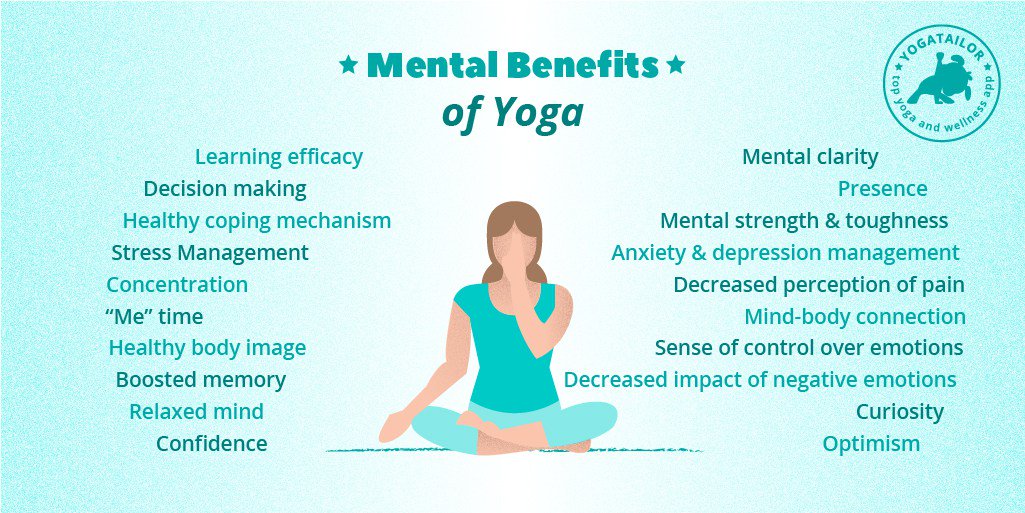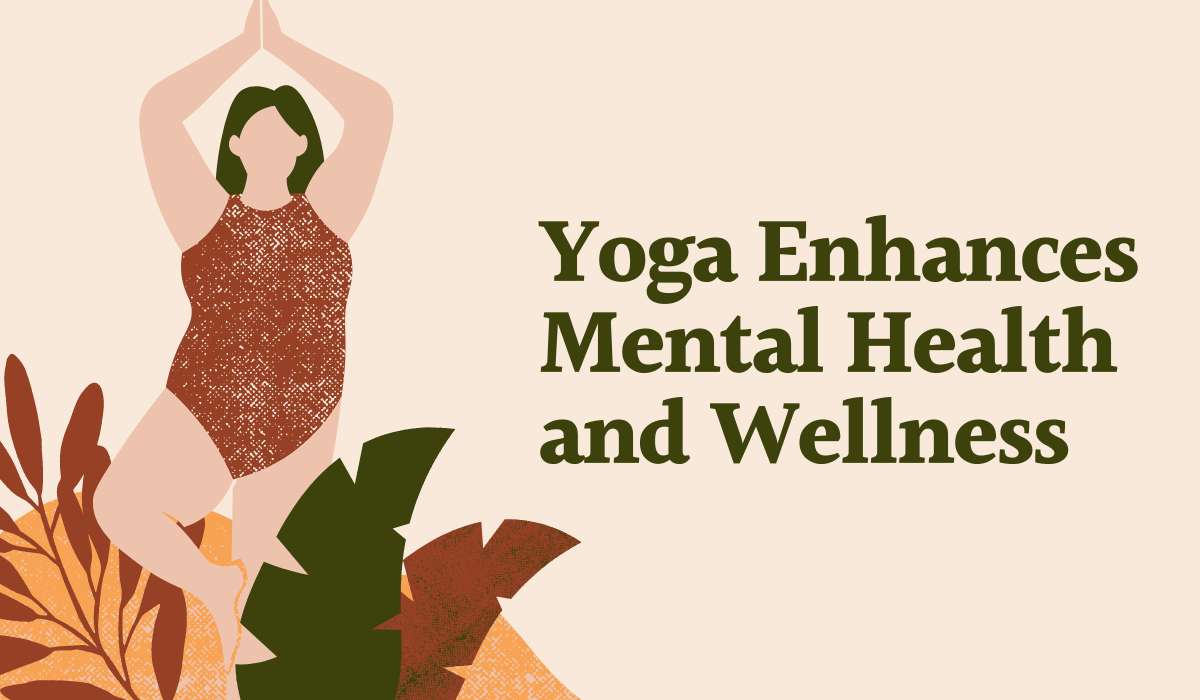Yoga Enhances Mental Health and Wellness offers a multitude of benefits for your mental health and overall wellness. Practicing yoga regularly can help reduce stress, improve sleep quality, increase self-awareness, and enhance your emotional well-being. It is known to be a powerful tool for managing anxiety and depression. The combination of physical postures, breathing techniques, and mindfulness in yoga helps to calm the mind, relax the body, and promote a sense of inner peace. Additionally, yoga encourages positive thinking and self-compassion, which can lead to improved self-esteem and a more positive outlook on life.
Benefits of yoga for stress reduction
Yoga offers various benefits for stress reduction. By practicing yoga regularly, you can effectively manage and reduce your stress levels. The combination of physical poses, breathing techniques, and mindfulness in yoga helps calm your mind and relax your body, leading to a decrease in your overall stress response. Yoga also promotes the release of tension in your muscles and encourages deep relaxation, which further aids in reducing stress. Additionally, yoga helps improve your self-awareness and teaches you effective coping mechanisms to deal with stressful situations in a more balanced way.
Physical and mental relaxation through yoga

Yoga provides you with both physical and mental relaxation. Through the practice of yoga, you can release tension in your muscles and promote a sense of calmness in your mind. The different poses and movements in yoga help stretch and strengthen your body, allowing for physical relaxation and flexibility. As you focus on your breath during yoga, you also cultivate a state of mental relaxation and clarity. By incorporating mindfulness into your practice, you can let go of any negative or racing thoughts, allowing your mind to find peace and tranquility. Yoga becomes a powerful tool for achieving overall relaxation and rejuvenation for your body and mind.
Yoga Poses for Mental Wellbeing
When it comes to mental wellbeing, certain yoga poses can be particularly beneficial. These poses help to quiet the mind, reduce stress, and promote a sense of inner peace.
Yoga poses to reduce anxiety
To alleviate anxiety, try practicing forward folds such as Uttanasana (Standing Forward Bend) and Balasana (Child’s Pose). These poses promote relaxation by calming the nervous system and releasing tension from the body.
Meditative yoga poses for mental clarity
If you’re seeking mental clarity, incorporate meditative poses such as Padmasana (Lotus Pose) or Sukhasana (Easy Pose). These seated postures enhance focus and cultivate a sense of centeredness, allowing your mind to settle and find clarity.
Remember that consistency is key when reaping the mental health benefits of these yoga poses. Regular practice will help you develop a deeper connection between your body and mind, fostering a state of overall mental wellbeing.
Yoga poses to reduce anxiety

To reduce anxiety, try practicing yoga poses that promote relaxation and calmness. One effective pose is Uttanasana, also known as Standing Forward Bend. In this pose, you fold forward from the hips, allowing your head to hang and releasing tension from the neck and shoulders. Another pose to try is Balasana, or Child’s Pose. This gentle forward fold helps to calm the nervous system and release stress from the body. By incorporating these poses into your yoga practice, you can alleviate anxiety and find a sense of peace and tranquility.
Meditative yoga poses for mental clarity
Meditative yoga poses can help you find mental clarity and peace. One pose to try is Sukhasana, or Easy Pose. This simple seated position allows you to focus on your breath and bring awareness to the present moment. Another meditative pose is Padmasana, or Lotus Pose. This classic posture helps calm the mind and enhances concentration. You can also practice Viparita Karani, or Legs-Up-The-Wall Pose, which promotes relaxation and improves blood circulation to the brain, enhancing mental clarity. Incorporating these meditative poses into your yoga practice can bring a sense of calm and clarity to your mind.
Breathing Techniques in Yoga for Mental Health
Incorporating specific breathing techniques, known as pranayama, can significantly reduce stress and promote mental well-being. One popular pranayama technique is the “4-7-8” breath, where you inhale deeply for four counts, hold your breath for seven counts, and exhale slowly for eight counts. This technique helps activate the body’s relaxation response and calm the mind. Another effective pranayama technique is alternate nostril breathing, where you alternate between breathing through each nostril. This practice helps balance energy in the body and reduces anxiety. By incorporating these pranayama techniques into your yoga practice, you can cultivate a sense of calm and mental clarity.
Deep breathing exercises for relaxation
Deep breathing exercises are another valuable tool in yoga for promoting relaxation and improving mental health. One such exercise is diaphragmatic breathing, also known as belly breathing. To practice this technique, you focus on breathing deeply into your diaphragm, allowing your abdomen to rise with each inhale and fall with each exhale. This type of breathing increases oxygen flow to the brain, relaxes the body, and reduces stress levels. Another deep breathing exercise is progressive muscle relaxation combined with deep breaths – you tense and release each muscle group starting from your toes up to your head while taking deep breaths. Deep breathing exercises can be easily incorporated into your daily routine to help manage stress and improve your overall mental well-being.
Pranayama techniques for stress relief

To reduce stress and find relief in your yoga practice, incorporating pranayama techniques is highly beneficial. Try the “4-7-8” breath, where you inhale deeply for four counts, hold your breath for seven counts, and exhale slowly for eight counts. This technique activates your body’s relaxation response and calms your mind. Another effective technique is alternate nostril breathing, where you breathe through each nostril alternately. This practice helps balance energy in your body and reduces anxiety. By integrating these pranayama techniques into your yoga routine, you can cultivate a sense of calm and mental clarity.
Deep breathing exercises for relaxation
Take a moment to focus on your breath and engage in deep breathing exercises for relaxation. Slowly inhale deeply through your nose, feeling your abdomen expand. Hold your breath for a few seconds, and then exhale slowly through your mouth, allowing all the tension to release. Repeat this cycle several times, feeling the calming effects of each breath. Deep breathing exercises increase oxygen flow to your brain and promote a state of physical and mental relaxation. Incorporate these simple yet powerful techniques into your yoga practice to experience profound relaxation and stress relief.
Mindfulness and Meditation in Yoga

Incorporating mindfulness practice into your yoga routine allows you to cultivate a deeper awareness of the present moment. As you move through each yoga pose, focus your attention on the sensations in your body and the rhythm of your breath. Be fully present with every movement and observe any thoughts or emotions that arise without judgment.
Through regular mindfulness and meditation practice, you can train your mind to be more calm and centered, reducing stress and anxiety. These practices also promote self-compassion and acceptance, helping you to cultivate a positive relationship with yourself and others.
By incorporating mindfulness and meditation into your yoga practice, you can experience a greater sense of peace and mental clarity. These techniques can be used not only on the mat but also in your everyday life, allowing you to navigate challenges with grace and serenity.
Remember to listen to yourself and give yourself permission to let go of distractions during these practices. Embrace the present moment and allow yourself to fully immerse in the stillness and peace that yoga, mindfulness, and meditation offer.
Incorporating mindfulness practice into yoga
Incorporating mindfulness practice into yoga allows you to deepen your awareness of the present moment. As you move through each yoga pose, focus on the sensations in your body and the rhythm of your breath. Be fully present with every movement and observe any thoughts or emotions that arise without judgment.
This mindfulness practice helps you to cultivate a sense of inner calm and peace. It allows you to fully connect with your body and mind, creating a harmonious balance. By being mindful on your mat, you train your mind to stay present and let go of distractions, which can carry over into your daily life.
Stay in tune with your body while practicing yoga, noticing any tightness or tension. Use this awareness to make adjustments and modifications to enhance your practice. Mindfulness in yoga helps you develop self-awareness, which can lead to greater self-compassion and acceptance.
Remember to listen to yourself during your practice and honor what your body needs in each moment. Choose poses and sequences that resonate with you, allowing yourself to flow through the movements with intention and awareness. By incorporating mindfulness into your yoga practice, you can experience a deeper connection between mind, body, and spirit.
Guided Yoga Enhances Mental Health and Wellness

Guided meditation for mental wellness can be a powerful tool to support your overall well-being. During guided meditation, you are led through a series of instructions and visualizations by a trained instructor or using an app or online resource. This form of meditation helps quiet the mind, reduce stress, and create a sense of calm and relaxation.
With guided meditation, you simply need to find a comfortable position, close your eyes, and follow along with the guidance provided. You will be encouraged to focus on your breath, let go of any racing thoughts, and anchor your attention in the present moment.
By incorporating guided meditation into your routine, you can experience numerous benefits for your mental health. It can help reduce anxiety and depression, improve concentration and focus, enhance self-awareness, and promote emotional balance.
One of the key benefits of guided meditation is that it provides an opportunity to cultivate mindfulness in a structured way. By following the instructions of the guide, you can learn to be more present and aware of your thoughts, feelings, and sensations without judgment.
Whether you prefer to participate in guided meditations in a group setting or use an app or online resource at home, incorporating this practice into your daily life can have a profound impact on your mental wellness. It allows you to take time for yourself, quiet the mind, and connect with your inner calm.
Consider exploring different types of guided meditation to find what resonates with you. There are guided meditations specifically designed for stress reduction, sleep improvement, boosting self-confidence, cultivating gratitude, and much more.
Remember that consistency is key when it comes to reaping the benefits of guided meditation. Aim to set aside dedicated time each day or week for this practice. Start with shorter sessions and gradually increase the duration as you feel comfortable.
Incorporating guided meditation into your mental wellness routine can be a game-changer for managing stress, promoting relaxation, and finding inner peace. Give yourself the gift of this practice and watch as it transforms your mental well-being.
For More Blogs visit Aerns

